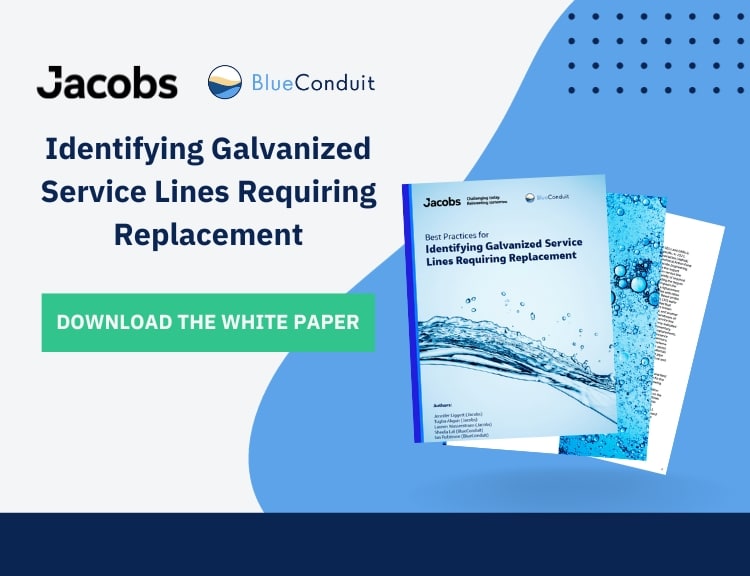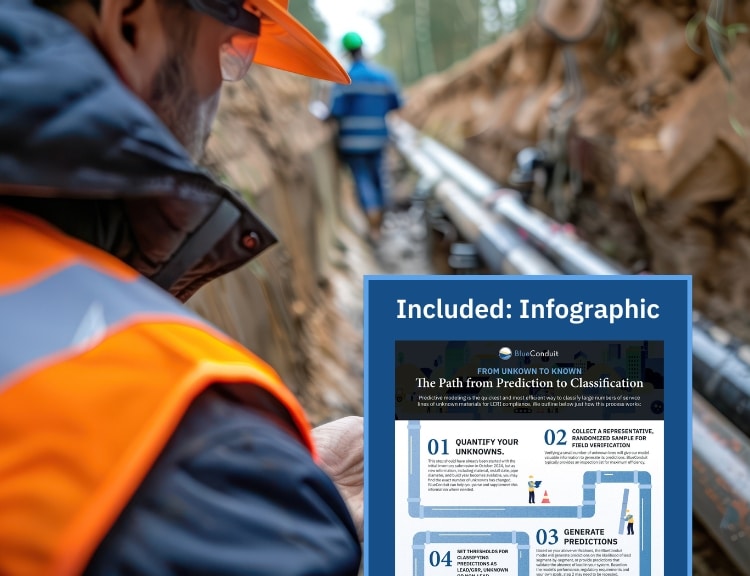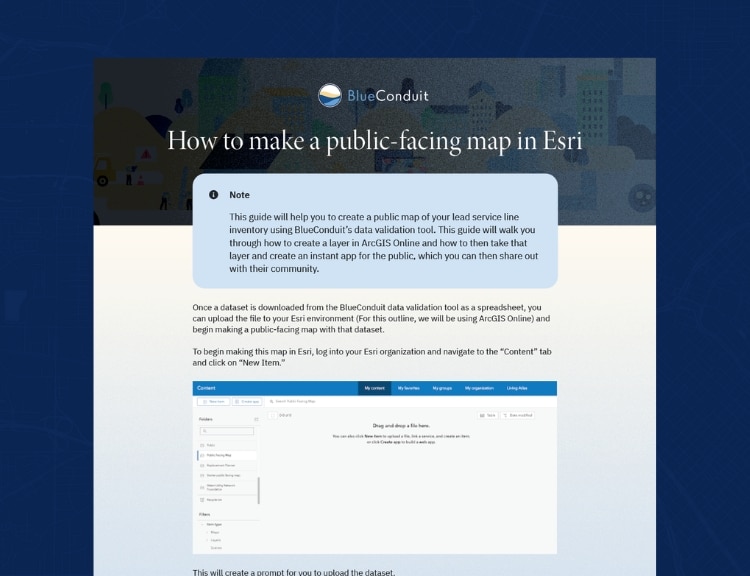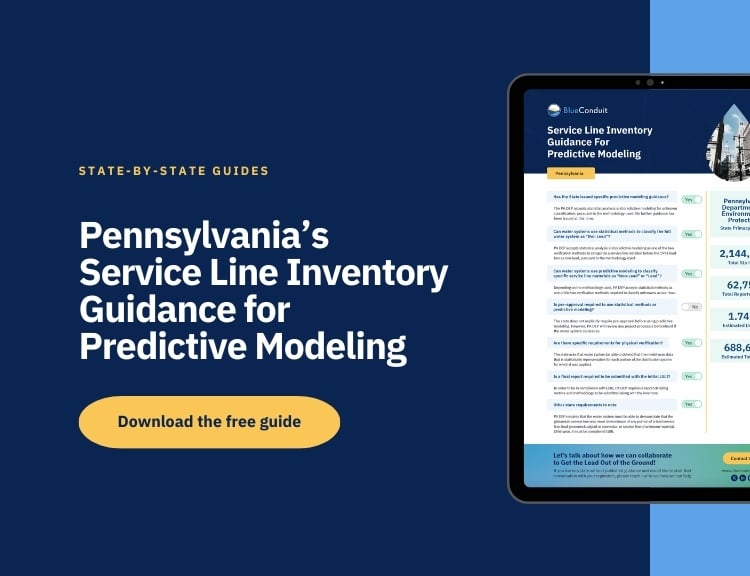Jacobs co-authored a whitepaper with BlueConduit on best practices for identifying galvanized service lines requiring replacement. Galvanized iron or steel service lines are part of many communities’ drinking water distribution systems. Galvanized lines are to be included service line materials inventories, due October 16, 2024. According to the Lead and Copper Rule Revision (LCRR), water utilities must plan to replace any galvanized lines that are, were, or may have been downstream of a lead service line.
A few highlights from the Galvanized Requiring Replacement Whitepaper
GRRs have been a particular concern because galvanized steel lines are dipped in a protective zinc coating containing lead that can leach into drinking water when corroded after decades of water exposure (Clark, Masters & Edwards, 2015). They also can capture lead from upstream lead sources and release lead if water quality changes or pipes are disturbed.
In the absence of complete information, robust statistical modeling can be used to help fill in the gaps.
From Best Practices for Identifying Galvanized Service Lines Requiring Replacement (download)
Get the full whitepaper from the Jacobs website.
Authors:
- Jacobs: Jennifer Liggett, Tugba Akgun, Lauren Wasserstrom
- BlueConduit: Sheela Lal and Ian Robinson.





